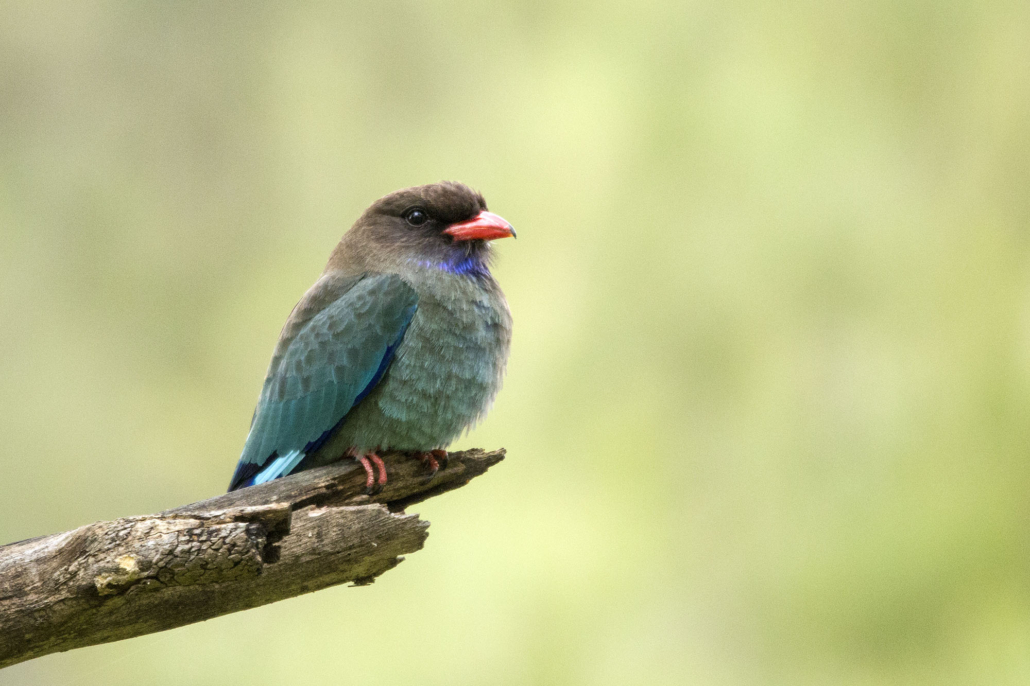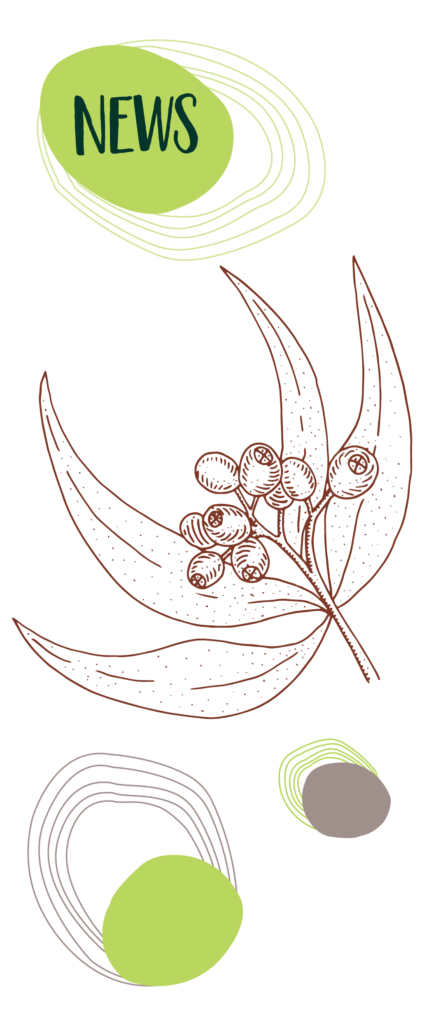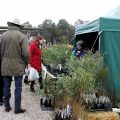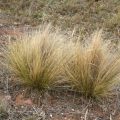Nature is Waiting!
Published 5th November 2021. Written by Maddison O’Brien
Spring is a time of renewal and growth, how fitting that we emerge from our lockdown shells just as our neighbours in the feathered world welcome new baby chicks in the nest. For some migratory species, like the Dollarbird, arriving in Australia is no small feat, having travelled around 3,000 kilometres from New Guinea to breed in Australia. This particular beauty has returned to Putta Bucca Wetlands, joining thousands of birds who call the reserve home.
The Dollarbird is the only Australian bird in the Roller family; they can be observed in a distinct rolling display flight during courtship. The pretty blue bird gets its name from the pale blue coin-shaped markings on its wings, clearly seen during flight. They prefer tall perches during feeding, from which they strike insects with impressive agility, before returning to the same perch to eat. Like many birds, they nest in tree hollows, with both parents taking care of the eggs and chicks.

Dollarbirds migrate about 3,000 KM’s to get to Australia each Spring. Photo taken at Putta Bucca Wetlands by Mark Leary
For Mudgee locals and visitors alike, Putta Bucca wetlands is a worthwhile place to visit, especially this time of year. How pleasant it is to go for a stroll, head out of town along the newly built paths and let a baby duckling or Moorhen brighten your day! Going for a walk in nature is so good for your physical health, and there is a growing body of empirical evidence revealing the value of nature to our mental wellbeing. So, take this article as your gentle nudge out of the nest, get out there and spread your wings! Refresh your senses with fresh air, Spring sunshine and the sweet calls of birds, frogs, and all kinds of wildlife; who knows what you might see!
Observing nature’s beauty is rewarding enough, but why not find ways to interact with what you see too. You might dabble in wildlife photography along your walk or download a bird ID app to increase your knowledge. Numerous published studies suggest that interacting with nature can reduce stress and mental fatigue, improve your mood and yield a whole suite of other physiological benefits.
We’ve launched a new segment in our newsletter and on our Facebook page called ‘Just Landed’ to celebrate birds and wildlife in the area. Thank you to Mark Leary for submitting such fabulous photos this month. When you’re out walking, if you capture some striking or extra cute pictures of birds or other wildlife in the region, we want to see them! Send them through to maddison@watershedlandcare.com.au, and we might just feature your photos in our next ‘Just Landed’ gallery!






